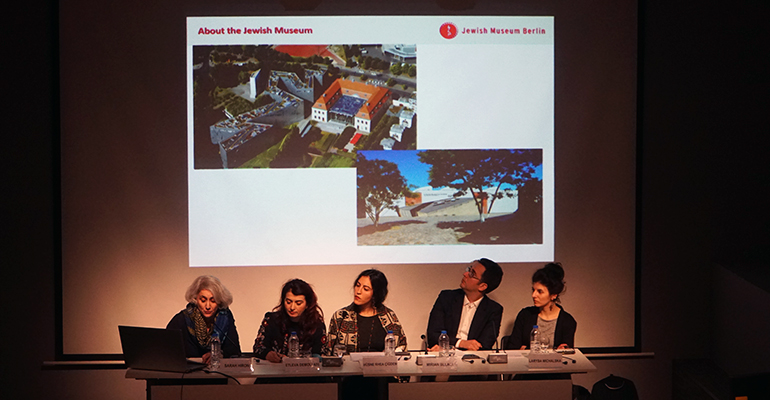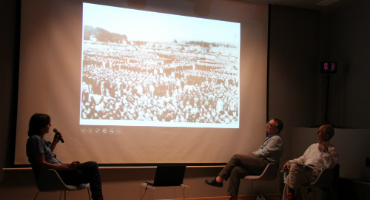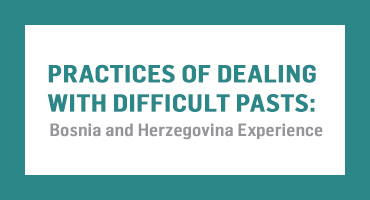
The panel, “Practices of Dealing with Difficult Pasts: Experiences from Germany, Poland and Albania” was organized on 20 December 2018 at Hrant Dink Foundation, Havak Hall. The panel was moderated by museum educator and writer Hüsne Rhea Çiğdem. Larysca Michalska from Galicia Jewish Museum, Sarah Hiron from Berlin Jewish Museum, Etlava Demollari from National Museum of House of Leaves and Mirian Bllaci from Cultural Heritage Without Borders participated in the panel as speakers.
In her presentation Larysa Michalska mentioned how Galicia Museum adopted a new perspective about presenting Jewish history, with the aim to challenge the stereotypes and misconceptions typically associated with the Jewish past in Poland and to educate both Poles and Jews about their own histories, whilst encouraging them to think about the future. She presented the chosen programs, events and activities organized at The Galicia Jewish Museum. She also shared with the participants some thoughts and reflections about challenges, difficulties, and possibilities in the work of Educators in the Galicia Jewish Museum.
Sarah Hiron from The Jewish Museum Berlin started her presentation with a general overview of the Jewish Museum Berlin. She talked about the role of the museum in Berlin and Germany, its mission, visitors and collection. Then she mentioned the methods and approach they adopt in the education and outreach programs. In the end, she discussed the innovative ways through which they can engage German society with the topics in the museum.
Etleva Demollari, the Director of the National Museum of Secret Surveillance “House of Leaves” in Tiran, talked about the treatment of the communist heritage in Albania and also about the museum, " House of Leaves" as the newest museum in Albania dealing with the difficult communist past. She explained the mission of the museum which is to commemorate the psychological violence and control of citizens during the communist regime through the former State Security, encouraging dialogue with and among the citizens about the past, the present, and the Albanian future.
The last speaker of the panel was Mirian Bllaci. In his presentation, he mentioned about the former Prison of Spaç, a notorious labor camp established in 1968 by the Communist government of Albania at the site of a copper and pyrite mine. By sharing some of the stories of the survivors they would like to shed more light on its importance in regards to the history of political persecution and resistance in a dictatorship context. He mentioned the dialogue-based and on-going efforts for turning Spaç into a Place of Dialogue and Action. As he emphasized Spaç is not only relevant for its historical significance but it is a unique place to talk about today's struggles for human rights and its effects on influencing people to take individual responsibility for the democratic health of the society today.




